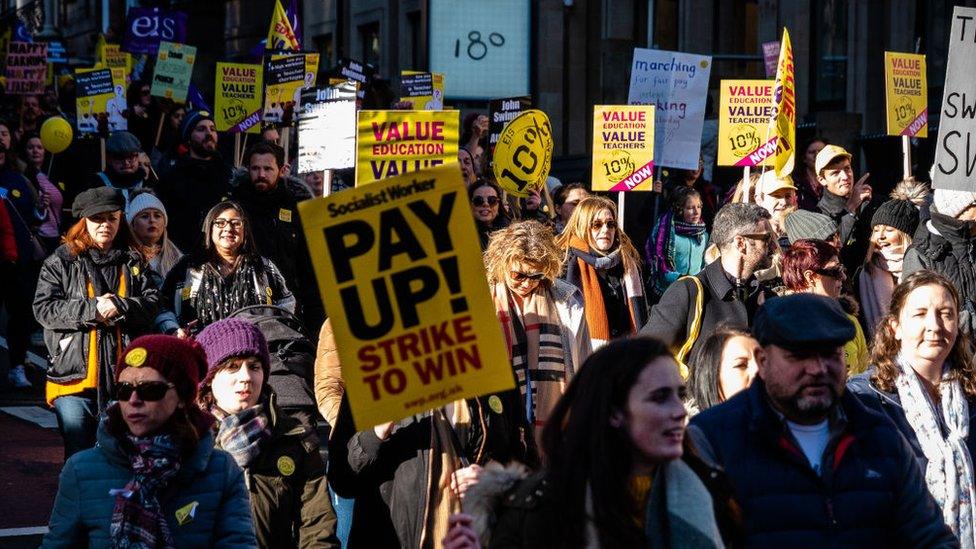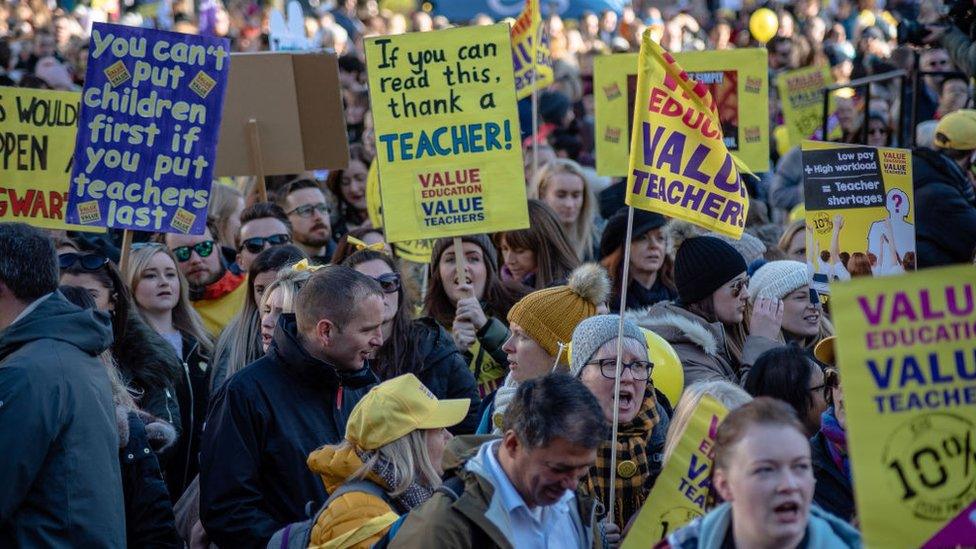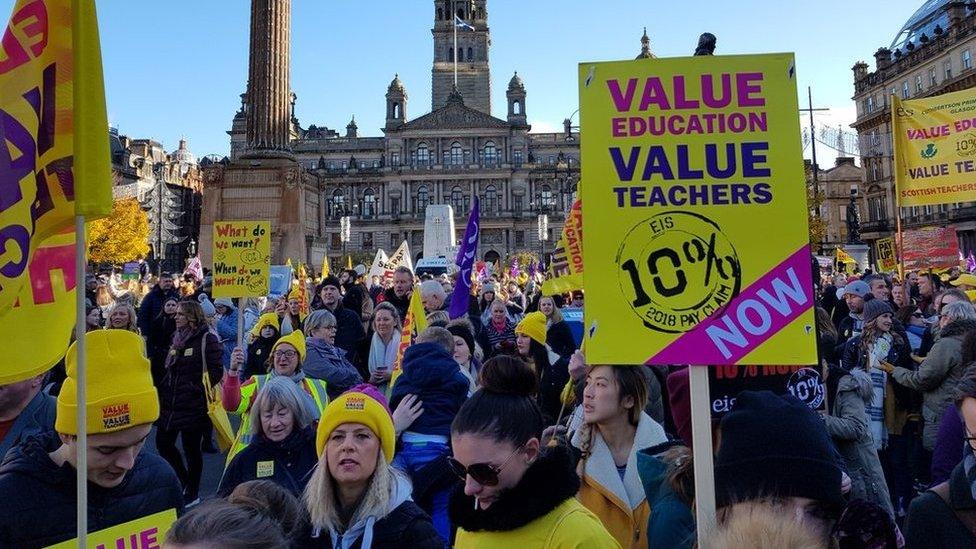Scotland's teachers to vote on improved pay offer
- Published

Unions claim up to 30,000 people took part in a rally in Glasgow over teachers' pay
Teachers will start voting today on whether to accept or reject an improved pay offer.
The EIS and the Scottish Secondary Teachers Association (SSTA) unions are balloting their members over the next three weeks.
The deal would see teachers get a series of rises worth 9% in total then another 3% rise next year.
Both unions are planning to hold strike ballots if their members reject the offer.
The EIS - by far the largest teachers' union - is recommending that its members vote against the offer.
The SSTA is making no recommendation to its members on how they should vote.
Councils and the Scottish government argue that it is the most generous pay offer in the public sector in the UK.
It would see teachers get a series of rises worth 9% in total by this April - some of which would be backdated as they cover last year's rise and a change to the main pay scale.
There would also be a 3% rise next year.
However it is significantly lower than the pay claim made by the unions. They called for a 10% rise in one year, effective from last April.

Unions want a 10% pay rise for teachers
Teachers' pay is negotiated by a committee which brings together unions, the Scottish government and councils. Councils employ teachers but pay, terms and conditions are standard across Scotland.
Council leaders unanimously agreed to make the improved pay offer last Friday. The government says it will give them money to fund it.
Hours later the EIS national council narrowly voted to recommend rejecting it after rigorous discussions.
EIS general secretary Larry Flanagan told BBC Scotland that it was "our members who will now decide" and the union would "go with the mood of members". But he added that members were far from satisfied that the current offer was the best one possible.
Councils and the government argue that there is no more money and that the current pay offer is "as good as it gets".
Recruitment challenge
Some teachers may believe the current offer is the best they are likely to be able to secure in the current financial climate.
Others may believe that further improvements to the deal are still possible or that more could be done to deal with other concerns they have around workload and bureaucracy.
Unions argued a 10% pay rise effective from last April would help restore the value of teachers' pay and deal with the challenge of recruiting people into the profession.
To some extent, the 10% pay claim has also become a "lightning conductor" for other concerns some teachers have - for instance over extra work they may have faced because of local cuts to classroom assistants or the level of specialist support available to children with additional needs.
The ballots will run until February 21 and the results of the ballots are expected to be announced on February 22.
Another teachers union, the NASUWT, says it is already in the process of preparing for a ballot for industrial action.
A spokeswoman said: "There is deep anger among teachers about pay. There has been improvement on the original offer which is welcome but this is in the context of a decade of year-on-year cuts to pay with the adverse impact on teachers."
Salary progression
In the event of strike ballots beginning in late February, there could be action before Easter.
Before a strike could take place, at least 40% of those entitled to vote would need to back it while the turnout would need to be at least 50%.
Education Secretary John Swinney urged teachers to give the offer serious consideration.
He said: "From the very start, the Scottish government and COSLA have been clear with the unions that we want to deliver the fair pay rise that teachers deserve. That is why we have put on the table the best pay deal in the UK for any public sector workers."
Mr Swinney said the lowest paid teachers would see their salaries increase 16% by April this year and almost 20% by next April, before any salary progression was taken into account. He also said the starting salary for a fully registered teacher will also increase by almost 20% by April 2020.
Mr Swinney added: "EIS council narrowly voted to recommend rejection of the enhanced offer but members will now have their say. I urge all teachers to be clear in their understanding of the deal on the table, to give it serious consideration and to recommend their representatives to accept on their behalf."
- Published27 October 2018
